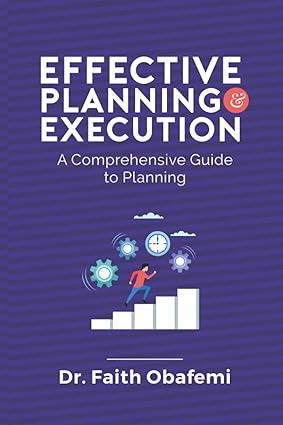Strategies for Adapting Your Plans to New Realities
Change proves inevitable in life, and mastering the art of adapting to new realities stands as a pivotal skill for personal and professional development. Whether it involves shifts in the market, changes in personal circumstances, or global events, the ability to adjust plans and strategies remains vital for success. In this blog post, we will explore strategies for embracing change and adapting plans to new realities.
Acknowledge the Change
The initial step in adapting to change involves acknowledging its presence. Denying or resisting change can lead to frustration and impede progress. By accepting change as a natural aspect of life, one can begin to shift their mindset and focus on seeking solutions.
Assess the Impact
Following acknowledgment, it is crucial to assess the impact of the change on existing plans and strategies. Consider how the change influences goals, resources, timelines, and potential obstacles. A comprehensive understanding of the impact enables informed decision-making regarding plan adjustments.
Remain Flexible
Flexibility proves paramount in adapting to change. While having a plan is important, rigidity can prove detrimental in the face of new realities. Embracing a flexible mindset allows for pivoting and making necessary adjustments as circumstances evolve.
Revisit Your Goals
When confronted with change, revisiting goals is beneficial to ensure they remain relevant and achievable. Evaluate whether the change presents new opportunities or necessitates realignment of objectives. Through reassessment, a clear roadmap for navigating the new reality can be established.
Seek Creative Solutions
Adapting to change often demands creative thinking and seeking innovative solutions. Brainstorming alternative approaches, exploring new partnerships, or leveraging different resources aids in navigating uncertainty and capitalizing on emerging opportunities.
Communicate Effectively
Effective communication plays a vital role in adapting plans to new realities. Keeping stakeholders informed about changes and involving them in decision-making fosters understanding and collaboration. Transparent communication is crucial during periods of transition.
Stay Resilient
Resilience proves invaluable when facing change. Setbacks and challenges are common during transitions, yet maintaining a resilient attitude aids in perseverance. Focus on problem-solving, maintain optimism, and derive lessons from experiences to emerge stronger.
Embrace Continuous Learning
Change offers an opportunity for growth and learning. Embrace change as a chance to expand knowledge, develop new skills, and gain insights. Approaching change with a learning mindset positions individuals for long-term success.
Embracing change and adapting plans to new realities stands as an essential skill in today’s dynamic world. By acknowledging change, remaining flexible, reassessing goals, seeking creative solutions, communicating effectively, staying resilient, and embracing continuous learning, individuals can navigate uncertainty and emerge stronger. Remember, change is not a setback but an opportunity for growth and innovation. By applying these strategies, success can be achieved in both personal and professional endeavors.
Purchase EFFECTIVE PLANNING & EXECUTION: A comprehensive Guide to Planning by Dr. Faith Obafemi.
The book is a comprehensive guide on the journey of planning and execution to have good results that stand the test of time, while also building you up. Isn’t that just great?It contains juicy contents such as reasons for planning at all and what planning is, entails, and is not. You will learn about the things you must establish and have in place to plan and execute successfully. In addition are a breakdown of the enemies of this success and how to overcome them. Two beautiful surprises await you from two unique and great mentors. This is a loaded ensemble.Enjoy.




